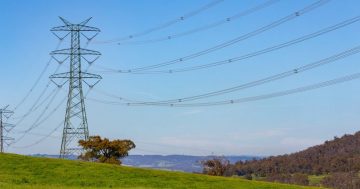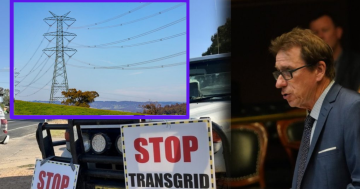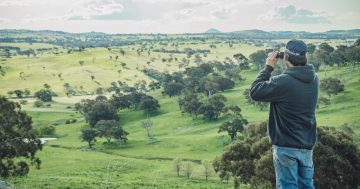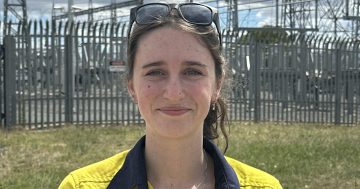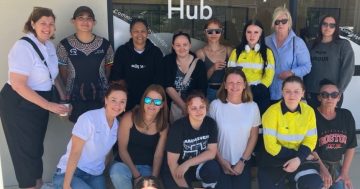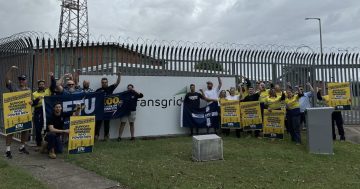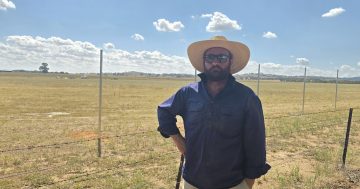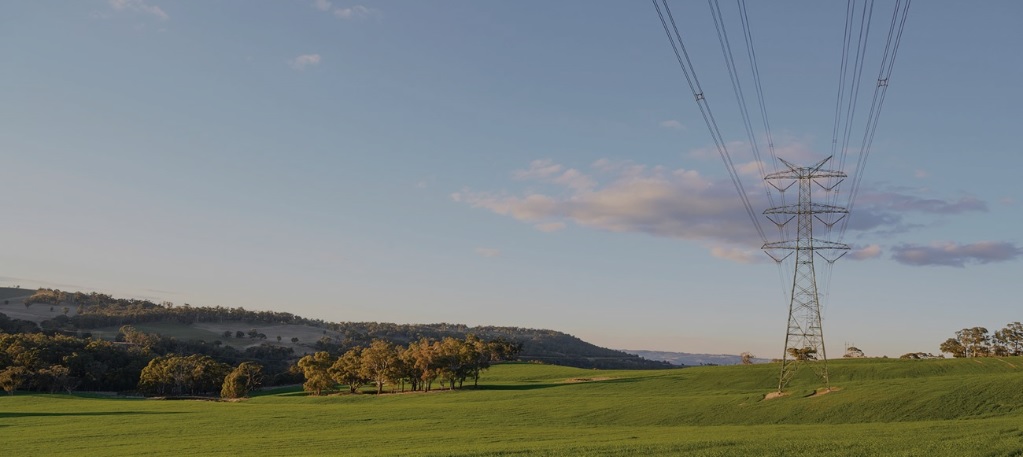
HumeLink’s transmission lines will link power substations at Wagga Wagga, Maragle in the Snowy Valleys and Bannaby in the Southern Highlands using 50- to 78-metre towers every 300 to 600 metres across 360 kilometres of NSW. Image: Transgrid.
Member for Wagga Wagga Dr Joe McGirr has welcomed this week’s announced parliamentary inquiry into ‘undergrounding’ power lines and is now encouraging the local community impacted by the proposed HumeLink project to start preparing their submissions.
HumeLink is a key project which falls under the auspices of Transgrid – the state’s transmission grid owner – and involves construction of 360 km of 500 kV overhead double transmission lines linking power substations at Wagga Wagga, Maragle in the Snowy Valleys and Bannaby in the Southern Tablelands.
Crossing state forests, bushland and prime farming land, the lines will be linked by 50- to 78-metre towers every 300 to 600 metres. HumeLink’s critics cite environmental, bushfire and economic concerns and have demanded the project go underground.
Transgrid have insisted that course is not viable.
A study completed in August 2022 found burying HumeLink would cost about $11.5 billion and push construction out by three to five years.
On Tuesday, it was announced NSW Minister for Energy Penny Sharpe had requested the Legislative Council’s Standing Committee on State Development inquire into and report on the feasibility of undergrounding transmission infrastructure for renewable energy projects.
Ms Sharpe said concerns raised regarding the environmental, agricultural, community and other effects of the HumeLink project and similar concerns regarding other transmission projects had prompted her decision.
The terms of reference are as follows:
That the Legislative Council Standing Committee on State Development inquire into and report on the feasibility of undergrounding the transmission infrastructure for renewable energy projects, with particular reference to:
- the costs and benefits of undergrounding
- existing case studies and current projects regarding similar undergrounding of transmission lines in both domestic and international contexts
- any impact on delivery timeframes of undergrounding, and
- any environmental impacts of undergrounding.
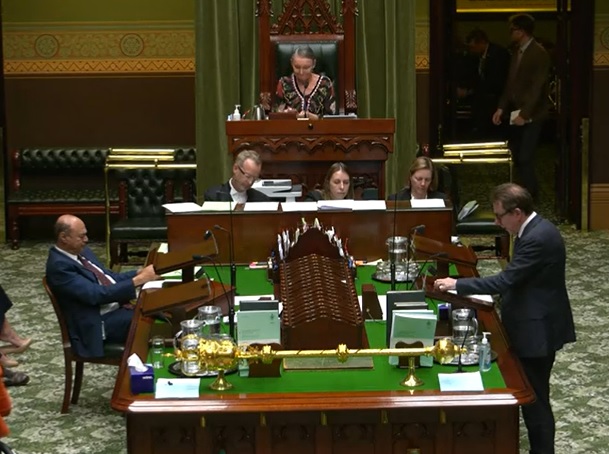
State MP for Wagga Wagga Dr Joe McGirr used Question Time in parliament this week to ask the Government for a response to community concerns about the HumeLink proposal. Image: NSW Parliament.
The announcement came directly after Dr McGirr used Question Time on Tuesday to query the Government about their response to community concerns after what he says was three years of asking the previous government.
Dr McGirr said he shared the concerns of the community that overhead transmission towers would raise fire risk, ruin prime farmland, scar the landscape, environment and visual amenity and would have a significantly negative impact on native habitat.
“Now there is an opportunity for undergrounding of HumeLink to be truly, fully and transparently considered,” he said, “and now is the time for community members to provide submissions, give evidence and make their voices heard.
“I strongly encourage those interested to contact my office if they have any particular issues to raise.”
Dr McGirr said he would provide details about how to make a submission as they were made available.
NSW Farmers has called the parliamentary inquiry a win for commonsense and community safety.
Energy Transition Working Group chair Reg Kidd said multiple renewable energy projects proposed or under construction in regional areas would require new power lines to connect them to the grid but too often landholders were being ignored by the big developers.
“We support a robust inquiry, because it will find that there are places where undergrounding wires is a win-win for production and community amenity that has not been addressed to date,” Mr Kidd said.
“Until now undergrounding has been ignored or dismissed as too expensive, not because of a cost/benefit analysis, but rather through the lack of will to fully investigate the impacts of huge infrastructure on rural communities,” he said.
According to a Wollongong University study, there was strong evidence the consequences of fires caused by transmission were worse than fires from other causes, and that fires caused by electrical faults were more prevalent and burned larger areas during elevated fire danger conditions.
The total economic cost of bushfires was set to almost double in the next 40 years, according to a conservative estimate from Deloitte, to about $1.3 billion per year by 2060.
For context, said Mr Kidd, the damage from the Black Summer fires alone was estimated at $230 billion.
He said balancing the cost of underground power lines against the potential risk and losses caused by overhead power lines was vital to getting a full understanding of the situation.
The committee is due to report its findings by 31 August 2023.






